
It’s important to enjoy our vegetable gardens to the maximum. They should be abundant and enjoyable havens in which to grow food and nurture ourselves away from the craziness and costliness of the world. Yet all too often we get ourselves in a frenzy of seed sowing and planting early in the year only to then stop… Instead filling our time with weeding, back-and-forth watering, feeding, produce picking and general all-purpose worrying over what on earth to do with the multifarious gluts we now have at our disposal. Spiralized courgette anyone?
All too often gardeners feel guilt. I see it time and time again on the courses I run.
We are familiar with the slow food movement, but I believe there needs to be a slower gardening momentum which puts wellbeing, wildlife and lower work generation centre stage. Honestly, it really doesn’t have to be this time consuming, not if we pace ourselves throughout the season, take time to enjoy our vegetable gardens and look beyond the summer surplus.
Sowing some later season seed is sensible in a myriad of ways. Not only will it provide you with opportunity to enjoy watching as new seedlings emerge dutifully into the mid-summer light, it will also help you make the best use of your smallholding vegetable garden. Filling any bare gaps of soil with these seedlings will ultimately help reduce the watering requirements of your plot by protecting the soil from drying out. Especially if you apply a mulch around plants till they develop robust root systems and get established, so there’s that too. Know also that in every packet of seed (in the crop varieties outlined below) lies a fantastic array of opportunities for a longer growing season, winter edibles and ways to beat the hungry gap of the following spring.
This story is from the {{IssueName}} edition of {{MagazineName}}.
Start your 7-day Magzter GOLD free trial to access thousands of curated premium stories, and 9,000+ magazines and newspapers.
Already a subscriber ? Sign In
This story is from the {{IssueName}} edition of {{MagazineName}}.
Start your 7-day Magzter GOLD free trial to access thousands of curated premium stories, and 9,000+ magazines and newspapers.
Already a subscriber? Sign In
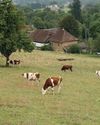
How to Buy a Smallholding in France- Long-time smallholder Lorraine Turnbull looks at the practicalities of moving to rural France
Aspiring smallholders are continually thwarted by the prices of smallholdings and property with land located within the UK. Even the humblest croft in Scotland comes with a substantial price tag and conditions which would make even an adventurous wannabee consider carefully. But all is not lost. For those willing to take the adventure of a lifetime, there is always Europe, and one of the most popular places is France.

Meet the Bournemouth goats and their supporters
These capricious animals are hard workers preserving the natural habitat

Still warm enough to sit outside with a Pizza
Henrietta Balcon uses fresh figs to create an unusual dish at Harvest time
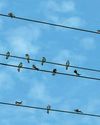
Goodbye to the birds of spring and summer
If you look and listen you might be able to see them preparing to leave says The RSPB
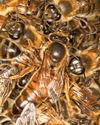
Get ready for the colder weather in the warmth of late summer
Claire Waring advises on doing the best to make sure your colonies survive until next spring
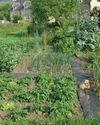
Preparing the Veg Patch for Winter
Lee Senior says, a well-run plot can excitingly continue to produce good quality, tasty, fresh food for much of winter
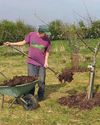
Time to prepare to plant your orchard
Wade Muggleton, smallholder and author of The Orchard Book, shares his practical experience so you can create your own fruit collection
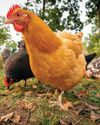
Choosing feed for the autumn
As autumn approaches, Joanna Palmer, nutritionist at the Smallholder Range, offers advice on choosing the right feed to support your adult birds through their annual moult and ensure your young birds grow and finish well at this time of the year.
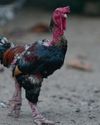
Vet advice from an experienced poultry vet
Reflecting on how much the humble hen has helped people world wide plus advice on stopping the scourge of red mite

Give your hens some support
Paul Donovan looks at the right and wrong ways of handling birds